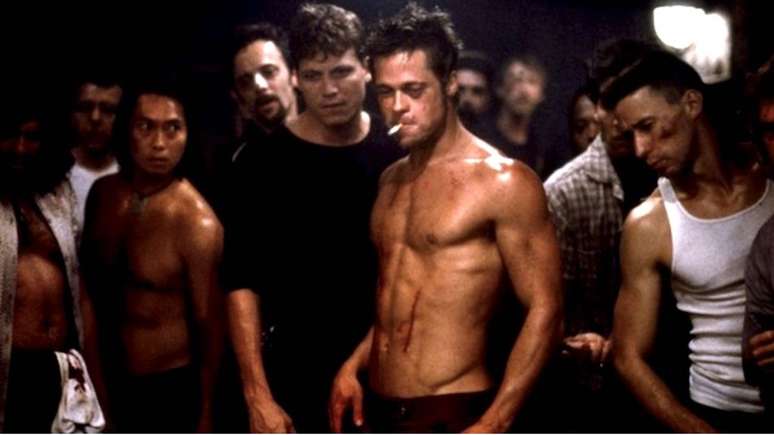Years ago, no cinephile could have guessed that David Fincher’s oft-copied but never equaled cult film would air on Star+.
Some movies are so ubiquitous you might not believe they ever struggled to score. Fight Club is one of those cases. When it was released in the United States in 1999, David Fincher’s influential cult film had a moderate opening weekend, so much so that a few months later the studio head was forced to resign over its failure.
However, the modest performance in theaters and initially divided audience reactions were forgotten. Today, fight club is considered an extremely funny, elegant and brutal stroke of genius and remains as relevant today as it was in the late 90s.
The fact that a nasty and twisted film like this has found a home on Star+ should deeply irritate or amuse the film’s protagonist, depending on how he woke up that day.
Not only is Fight Club in the top 20 best films of all time on the IMDb film rating portal, but it has also been voted best film by Total Film since the film magazine was founded by its editors. You do not need more reasons to review or even have your first contact with Clube da Luta.
FIGHT CLUB: THE HISTORY
In case you’re new to Fight Club, or if everyone around you has followed the first rule: the film tells the story of Jack (Edward Norton), an executive who suffers from insomnia. After an explosion in his apartment, he is desperate and seeks refuge with an acquaintance: the charismatic rebel Tyler Durden (Brad Pitt). However, he is a troublemaker, as described in the book on which the film is based.
When Tyler and his unlikely protégé argue on a whim, it escalates into one big fight. In doing so, they realize how liberating violence is for them. So they start a fight club where unknown men beat each other up to feel manly again. The main thing is that they follow the rule of never talking about Fight Club. Everyone should follow this rule – yet the idea of fight club it is spreading across the country like a virus. A very dangerous virus.
IT’S NOT WHAT SOME THINK IT IS
Not only does the storyline of Fight Club have a juicy surprise to offer – which won’t be revealed at this point to surprise you just in time – but the external impact of the production is also quite amazing.
That’s because, in the early 2000s, there was a small fan base that misinterpreted the film adaptation of the cult novel of the same name written by Chuck Palahniuk. He made Fight Club as a critique of cowardly men who don’t stand up to social change.
Not only did this fan base misunderstand the film, it also temporarily damaged its reputation: there were moviegoers who condemned Fincher’s satire because of these groups. But as the heated debates about Fight Club have died down in pop culture and the rumors have died down, the production can finally be acclaimed for what it is: a bittersweet thriller that is also a sardonic and whimsical satire, introducing us to men who would rather starting a terrorist cell rather than going into therapy.
EXCITING, FUN, EVIL
Gone Girl director David Fincher is a pro known for creating good suspense and Fight Club is no different. With captivating shots and an impressive soundtrack, Fincher creates a sharp atmosphere. That in itself puts us on hold. But the way the story unfolds in Jack’s apartment, or Tyler Durden’s filthy boarding house, among other things, puts us right in the middle of a turbulent experience, until it all fizzles out.
From inserting pornographic images into family films, to selling body fat soap, to recruiting the dumbest henchmen, Durden’s crimes are grisly yet gripping and fun to watch.
Overall, the winding story not only offers chills, but is also extremely entertaining: Edward Norton’s narration and his confused and weary performance are incredibly spot on. Finally, Brad Pitt gives one of the best and wittiest performances of his career as a grinning leather-jacketed troublemaker.

Source: Terra
Rose James is a Gossipify movie and series reviewer known for her in-depth analysis and unique perspective on the latest releases. With a background in film studies, she provides engaging and informative reviews, and keeps readers up to date with industry trends and emerging talents.




![A Better Life Preview: What’s in store for Wednesday, October 22, 2025 Episode 447 [SPOILERS] A Better Life Preview: What’s in store for Wednesday, October 22, 2025 Episode 447 [SPOILERS]](https://fr.web.img5.acsta.net/img/f8/43/f843493759d61370dcef713a987b0620.jpg)

-u856n76lmfjq.jpg)
